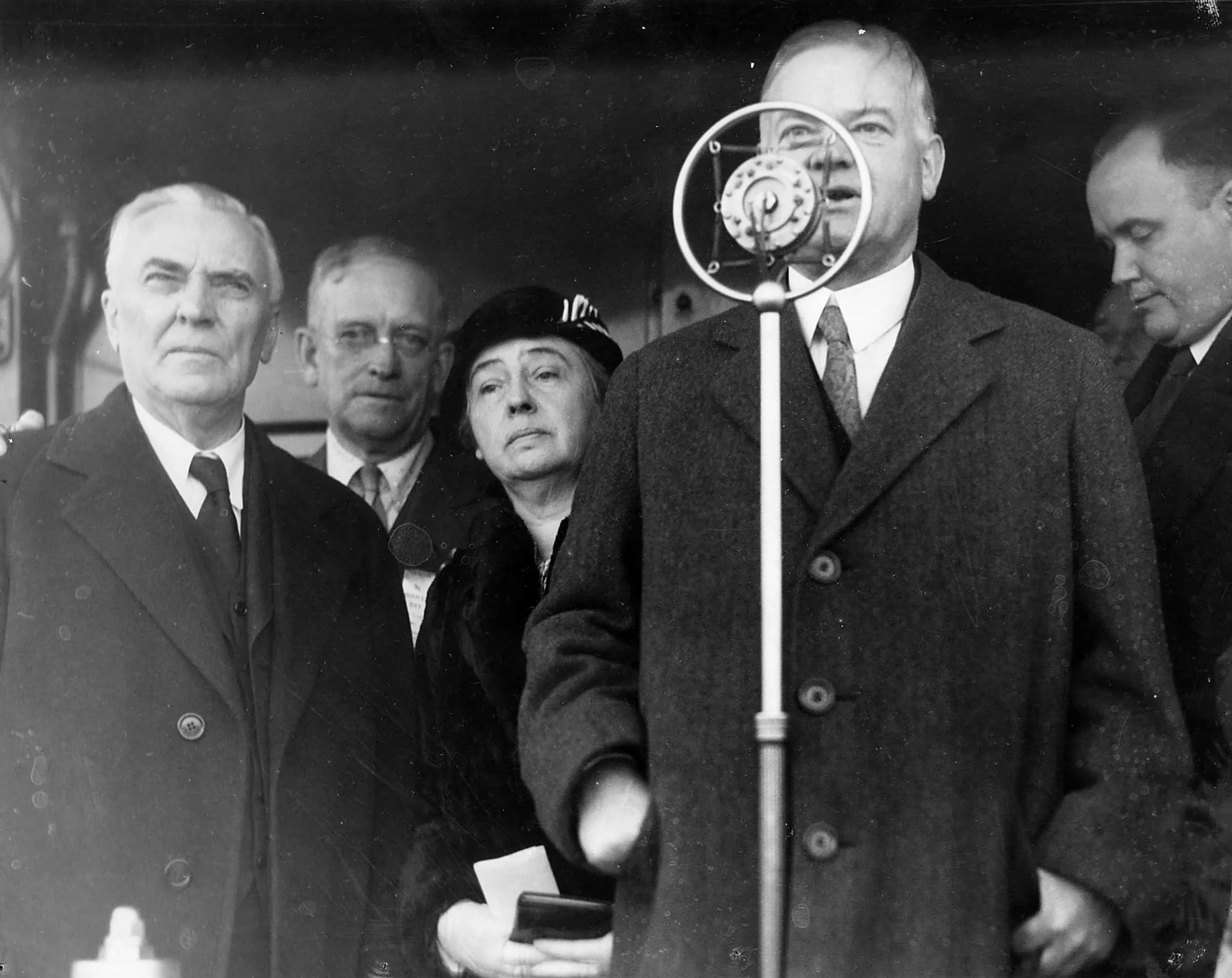
The Life of Herbert Hoover: From Engineer to Commander in Chief
mashupch
- 0
mashupch.com – Herbert Hoover, the 31st President of the United States, holds a unique place in American history. Though his presidency is often remembered for the economic challenges of the Great Depression, Hoover’s life story is far more complex and compelling. Before ascending to the presidency, Hoover had a remarkable career as an engineer, businessman, and humanitarian, making significant contributions to global relief efforts and earning a reputation as a skilled administrator. His transition from an engineer to the Commander in Chief is one of the most intriguing aspects of his life and legacy.
This article will explore the multifaceted life of Herbert Hoover, from his early years as an engineer to his unexpected path to the presidency and the challenges he faced during his time in office.
Early Life and the Formative Years of Herbert Hoover
Herbert Clark Hoover was born on August 10, 1874, in West Branch, Iowa, to a Quaker family. His parents, Jessie and H.J. Hoover, were devout members of the Religious Society of Friends, and Hoover’s early upbringing instilled in him values of simplicity, hard work, and a deep sense of social responsibility. However, Hoover’s early life was marred by personal tragedy. His father, a blacksmith, died of cancer when Hoover was just 6 years old, and his mother passed away when he was only 9. Hoover was sent to live with various relatives after his parents’ deaths, a situation that shaped his independent character.
Despite these early hardships, Hoover excelled in school and was determined to make something of himself. He eventually attended Stanford University, where he studied geology and engineering. Graduating in 1895 with a degree in geology, Hoover’s education laid the foundation for a successful career that would see him travel the globe.
A Career as an Engineer: From Mining to Global Impact
After graduation, Hoover embarked on a career in mining engineering, a field that would bring him both wealth and recognition. His work took him to various parts of the world, including China, Australia, and South Africa, where he worked as a mining consultant for several companies. Hoover’s expertise in geology and engineering allowed him to secure lucrative contracts, and by the early 1900s, he was financially successful. However, it was not just his technical expertise that made Hoover stand out; his ability to manage large, complex projects and organize diverse teams of workers became one of his hallmarks.
Global Adventures and Building a Reputation
During his time in China, Hoover experienced the Boxer Rebellion, a violent anti-foreign uprising in 1900. Although he was caught up in the chaos, Hoover’s calm and methodical approach helped him to manage the situation and safeguard American and European interests in the region. His ability to handle crisis situations further cemented his reputation as a capable and resilient leader.
By 1908, Hoover had amassed considerable wealth and a stellar reputation in the mining industry. He made a fortune from his work in the Philippines, Australia, and South Africa, but it was not just wealth that motivated him. Hoover’s passion for improving the world around him led him to focus increasingly on humanitarian efforts, and it was in this area that he would make some of his most significant contributions.
A Humanitarian Leader: Hoover’s Role in World War I
Herbert Hoover’s rise to prominence as a public figure came not through his engineering work, but through his extraordinary efforts during and after World War I. When the war broke out in 1914, Hoover was already well known in business circles, but his true calling as a humanitarian began to take shape.
Organizing Relief for Belgium
In 1914, as World War I began, Hoover was living in London with his wife, Lou Henry Hoover. When Germany invaded Belgium, the country was faced with widespread starvation as the occupying forces stripped the land of its food resources. Hoover took it upon himself to organize a relief effort to provide food and supplies to the beleaguered Belgian population. He led the Commission for Relief in Belgium, a private relief organization that coordinated international aid to feed millions of Belgian civilians.
Under Hoover’s leadership, the Commission was able to raise substantial amounts of money and deliver aid to those in need. This effort was so successful that it earned Hoover international acclaim. His reputation as a humanitarian and a skilled administrator grew, and he became known as “The Great Humanitarian.”
Expanding Humanitarian Efforts
After the war, Hoover’s focus on humanitarian work intensified. He became the head of the American Relief Administration (ARA), an organization that provided food to war-torn Europe. The ARA helped feed millions of people in countries such as Poland, Austria, and Germany, and Hoover’s careful management of these relief efforts earned him widespread respect and admiration. In total, Hoover’s relief organizations helped save more than 20 million lives during the course of the war and its aftermath.
Hoover’s success in organizing and administering large-scale humanitarian operations set the stage for his future political career. His efforts were so impressive that even foreign governments sought his help in managing their crises. His organizational skills, ability to manage large teams, and unrelenting drive to alleviate human suffering would later play an essential role in his rise to the presidency.
Transition to Politics: From Business to Public Service
Despite his success in the private sector, Hoover was increasingly drawn to public service. His political career began in earnest when he was appointed as Secretary of Commerce by President Warren G. Harding in 1921. Hoover’s record as a skilled administrator and his reputation as a reformer made him an ideal choice for the role.
Secretary of Commerce: A Vision for Prosperity
As Secretary of Commerce, Hoover focused on improving the efficiency of American industries and expanding the nation’s infrastructure. He believed that government should play a role in fostering economic growth, but he also believed that businesses and industries should be free to innovate and thrive on their own. Hoover worked to modernize industries such as transportation, aviation, and communication, and he championed efforts to regulate the emerging radio industry.
Hoover’s vision for the future of the U.S. economy was based on the idea of cooperation between government, business, and labor. He believed that by encouraging collaboration, America could achieve unprecedented levels of prosperity. His time as Secretary of Commerce was marked by an optimistic belief in the potential for progress, and Hoover was widely seen as a forward-thinking leader.
The Presidency: Herbert Hoover’s Time in the White House
In 1928, Hoover was elected President of the United States, succeeding Calvin Coolidge. Hoover’s campaign was built on a platform of continued prosperity, and he promised to bring “a chicken in every pot and a car in every garage.” His optimism about the future of the nation was palpable, but his presidency was soon to be overshadowed by one of the greatest economic crises in American history.
The Great Depression
Just eight months after Hoover took office, the stock market crash of 1929 triggered the Great Depression, a catastrophic economic downturn that would last for more than a decade. The depression led to mass unemployment, widespread poverty, and a general sense of hopelessness across the United States. Hoover’s belief in limited government intervention and his commitment to self-reliance initially led him to take a hands-off approach to the crisis. He believed that the economy would naturally recover through individual initiative and local aid, but as conditions worsened, it became clear that more direct government intervention was needed.
Efforts to Combat the Depression
In response to the growing crisis, Hoover advocated for several measures to address the economic collapse. He pushed for public works programs, such as the construction of the Hoover Dam, to create jobs and stimulate the economy. He also supported the creation of the Reconstruction Finance Corporation (RFC), which provided loans to banks, businesses, and state governments in an effort to stabilize the economy.
However, Hoover’s policies were widely criticized as insufficient, and his inability to prevent the worsening of the Depression led to a decline in his popularity. By 1932, when he ran for re-election, the American people had grown disillusioned with his leadership. Hoover was defeated in a landslide by Franklin D. Roosevelt, who promised a New Deal to combat the Depression.
Post-Presidency: A Return to Public Service
After leaving the White House, Hoover largely withdrew from politics but continued to serve the public in various capacities. He remained active in humanitarian efforts, particularly in Europe, where he helped provide food and relief during World War II. Hoover also worked on various commissions and wrote extensively, offering his thoughts on government and politics.
His post-presidential years saw him attempt to rebuild his reputation as a competent and compassionate leader. Hoover remained engaged with global issues, providing guidance on matters of public policy and continuing to advocate for the values of self-reliance and voluntary cooperation.
Legacy: From Engineer to Commander in Chief
Herbert Hoover’s life journey—from a young mining engineer to a humanitarian leader, to the President of the United States—was one of remarkable achievement and complexity. Although his presidency was defined by the Great Depression, Hoover’s earlier efforts in humanitarian relief and his vision for a prosperous America continue to shape his legacy. His ability to transition from the world of business and engineering to the highest office in the land remains a testament to his adaptability, leadership, and dedication to public service.
Though his time in office was difficult, Hoover’s life story is a testament to the power of innovation, service, and the desire to improve the human condition. From his humble beginnings in Iowa to his role as Commander in Chief, Hoover’s path to the presidency was as remarkable as it was unexpected.


